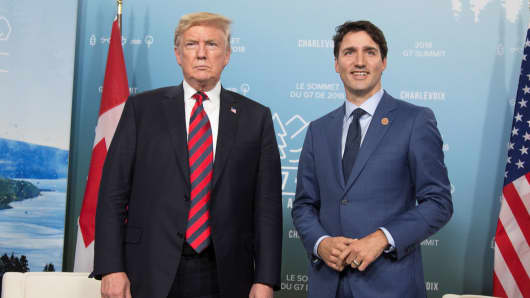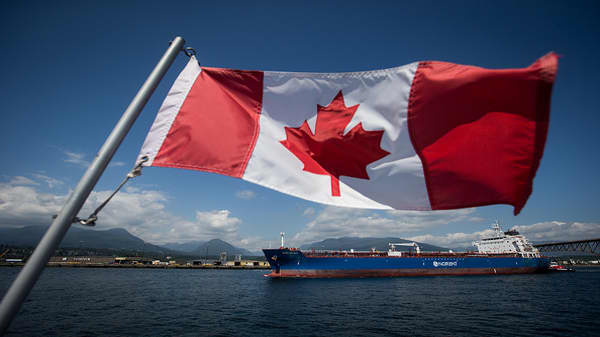The major exception is Michigan, which runs a large trade deficit in goods with Canada and voted for Trump by a slim margin in 2017.
Trump's trade complaints also include a fundamental misreading of the overall U.S. trade position with Canada.
Trump insists that trade relations are unfair because of a large U.S. trade deficit in goods with Canadian producers, suggesting that Canada is "winning" on trade.
That claim ignores a full accounting of the exchange of U.S. goods and services with Canada. Last year, goods exports totaled $282.5 billion; goods imports totaled $300.0 billion, for a trade deficit in goods of $17.5 billion, according to White House data.
But the U.S. economy, and the bulk of jobs it produces, is much more heavily weighted toward the delivery of services, from the production of television and movies to the delivery of a college education.
Those services also represent a major U.S. export. When a family from Montreal visits Disney World in Florida or a student from Toronto pays tuition to a university in Kansas, that exchange represents an export of U.S. services.
As it does with most of the rest of the world, the United States runs a trade surplus in services with Canada. Last year, services exports were $58.7 billion; services imports were $32.8 billion, for a services trade surplus of $25.9 billion.
That services surplus more than offset the deficit in goods, giving the U.S. an overall trade surplus with Canada of $8.4 billion.
— Reuters contributed to this report.





